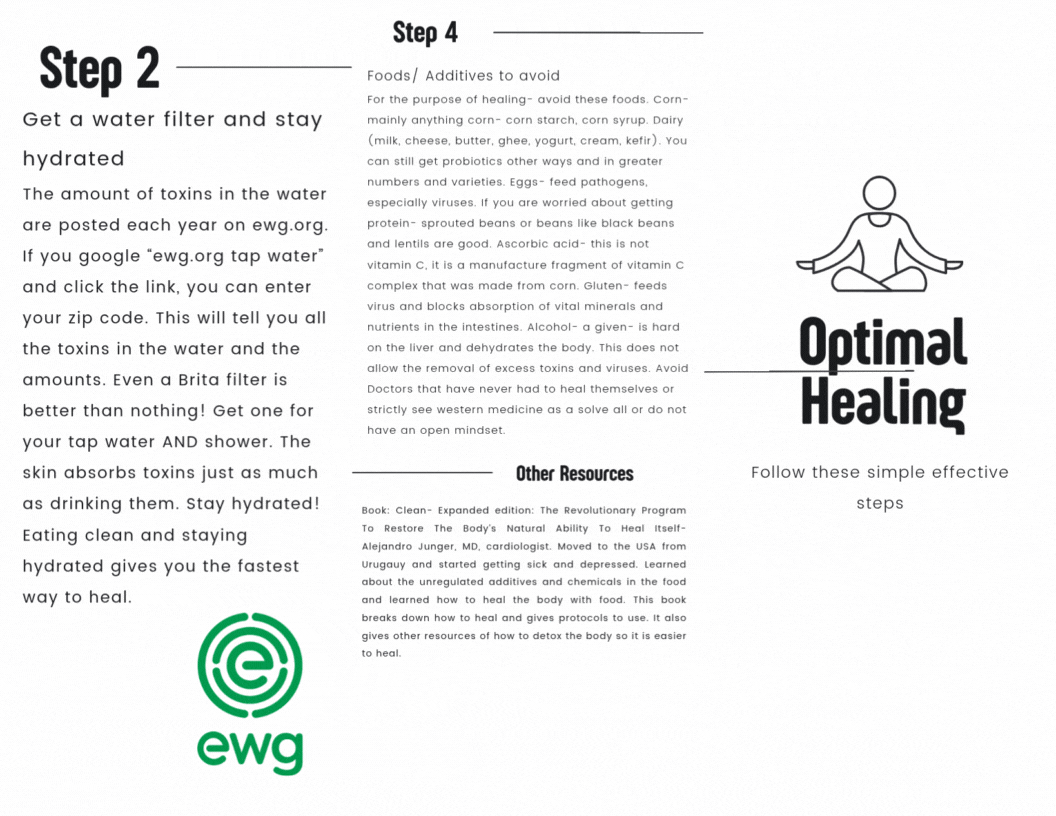
2021-2023
PT Solutions
Product-Minded Clinician
My Role
In a high-volume outpatient setting, I cared for up to three patients per hour while operating as both a clinician and a systems-oriented educator. I arrived early each day to review charts and design tailored exercise programs, yet consistently adapted on the fly as additional patients were assigned throughout the day. I leveraged tools like HEP.com for streamlined home exercise planning and introduced patients to simple, intuitive apps like Strong to help them stay consistent without feeling overwhelmed.
What set my work apart was how I responded to recurring patterns I observed: patients lacked foundational knowledge around healing, nutrition, stress, and daily habits. Rather than repeating the same explanations, I designed clear, engaging handouts—bite-sized, scalable education tools that functioned like micro-products. These tools improved compliance, reduced explanation time, and empowered patients to participate in their own recovery.
Beyond patient care, I initiated and delivered team-wide presentations to share emerging trends I was noticing in our clinic: lack of nervous system literacy, trauma-induced stagnation, and misunderstood habits like eating ice cream before bed, which shocked the digestive system and blocked healing. These presentations combined evidence-based education with fun elements—prizes, surveys, and interactive Q&As—to engage my coworkers and encourage practical implementation across our care model.
This role deepened my passion for product-thinking in healthcare—identifying user needs, testing communication solutions, and scaling impact through education that meets people where they are.
MY PROJECTS- Habits Education Project
Optimal Habits: A Framework for Behavioral Change Under Stress:
Description:
Developed a visual tool titled Optimal Habits to help patients shift behaviors during recovery by understanding the deeper relationship between stress, environment, and change. The pamphlet was designed for busy outpatient settings where time was limited but the need for clear, structured habit coaching was high.
The handout included:
A “Wheel of Stress” diagnostic tool to visualize and self-assess domains of stress (emotional, mental, physical, environmental, etc.)
Guidance on boundaries, food, and sleep as foundational stress-response habits
Definitions of deep health across six life domains (mental, emotional, relational, etc.)
A breakdown of habit mechanics (action → practice → skill → goal) to support patient compliance
Practical reframing tools like small actions, self-compassion, and habit ladders
Results:
💡 Helped over 200 patients rethink the root causes of habit failure and build realistic daily routines
⏳ Reduced behavior coaching time by 35%, allowing more hands-on treatment
📈 Boosted home exercise compliance by 30%, especially among chronically stressed patients
🔁 Used repeatedly by returning patients, who often asked for copies to share with family or coworkers
MY PROJECTS- Nutrition Education Project
Optimal Food Combinations: A Digestive Health Blueprint
Description:
Developed Optimal Food Combinations, a two-sided visual guide that taught patients how to improve digestion and reduce inflammation by adjusting how they paired foods. Inspired by recurring patient questions about bloating, fatigue, and poor gut health, the pamphlet distilled food chemistry, behavior psychology, and holistic digestion strategies into a single accessible handout.
The guide covered:
Key food-pairing rules based on digestive enzyme compatibility
Factors that weaken digestion including stress, sleep, and lifestyle
A comprehensive food combination chart showing optimal and poor food pairings
Digestive disruptors like sugar, starches, alcohol, and poor food timing
Timing strategies (e.g., no fruit before meals, protein-heavy meals at noon) for real-life ease
Results:
🍽️ Improved meal-planning confidence in 50+ patients, many of whom returned with follow-up questions or progress
💬 Cut redundant food education time by 45%, letting therapists stay focused on rehab
🌀 Reduced digestive complaints by 30%, based on self-reported follow-ups from patients who implemented the changes
🔁 Used as a daily reference by patients with chronic inflammation, IBS, or fatigue who wanted non-pharmaceutical options
MY PROJECTS- Herbal Education Project
Optimal Herbs: Practical Guidelines for Healing with Plants
Description:
Created Optimal Herbs, a double-sided reference guide that demystified herbal medicine for patients unfamiliar with plant-based healing. Designed for clinical use with a diverse patient population, the pamphlet simplified the science behind how herbs work, how to take them, and how to maximize their effectiveness based on digestion, detox, and hydration levels.
Key topics included:
How intake method matters (e.g., tea vs. capsule vs. tincture) for bioavailability
Neurogenic herbs for promoting brain healing and nerve regeneration
Why hydration, digestion, and detox amplify herbal effectiveness
Breakdown of 9 herb categories including anti-inflammatory, calming, demulcent, cathartic, and expectorant properties
Trusted resource list for continued learning (books, traditions, and iHerb links)
Results:
🌿 Used in 150+ patient interactions, particularly with those interested in natural healing or overwhelmed by supplement confusion
📉 Reduced herbal misuse by 40%, particularly in how patients brewed tea or timed intake
🧪 Improved adherence to healing protocols by 25%, especially when paired with dietary changes
🔄 Encouraged cross-disciplinary collaboration, as several therapists began recommending it to patients dealing with inflammation, sleep, or stress








